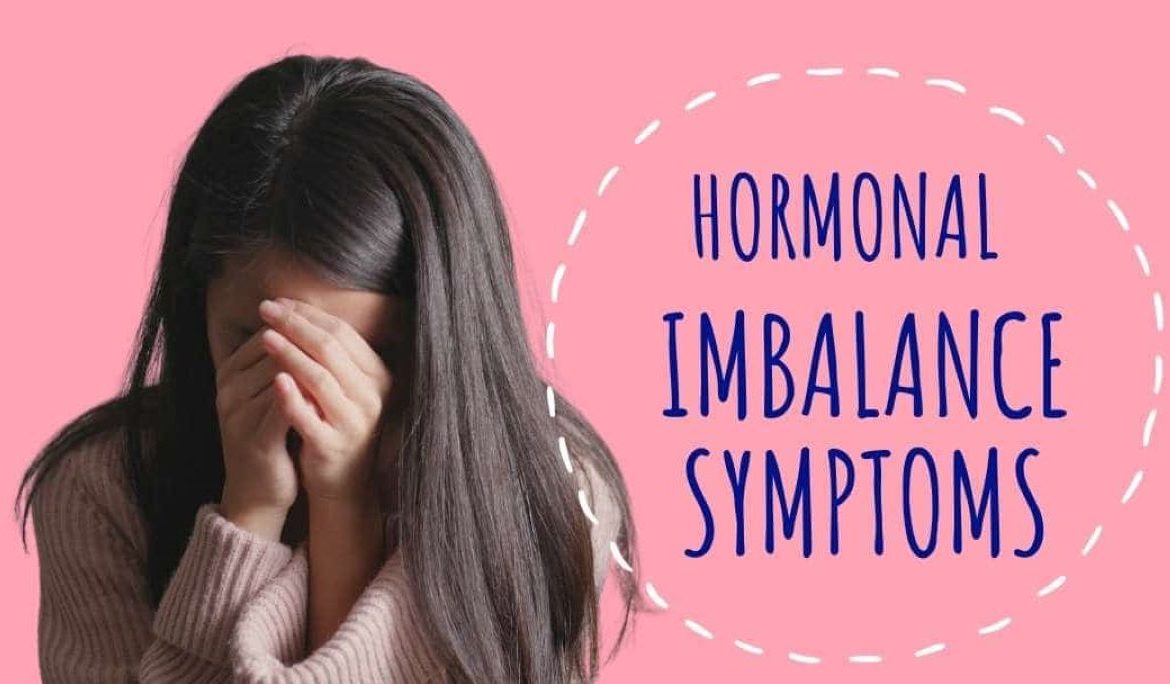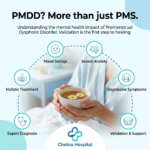Introduction
Hormones are the body’s chemical messengers. Produced by glands in the endocrine system, they travel through the bloodstream to organs and tissues, influencing everything from metabolism and reproduction to mood and sleep. For women, hormonal balance is especially crucial, as it affects their menstrual cycle, fertility, weight, mental health, and skin condition.
However, even a slight imbalance in hormones can lead to a range of physical and emotional symptoms. Hormonal imbalance is increasingly common among women today due to lifestyle, stress, poor diet, and underlying medical conditions. In this blog, Dr. Bharati Patil, a trusted Gynaecologist in Chinchwad at Chetna Hospital, explains how hormonal imbalance impacts women’s health and what can be done about it.
What is Hormonal Imbalance?
Hormonal imbalance occurs when there is too much or too little of a hormone in the bloodstream. Even small imbalances can cause significant side effects, as hormones are deeply interconnected with the body’s systems.
Some key hormones that play a role in women’s health include:
- Estrogen – controls female reproductive health, periods, and pregnancy.
- Progesterone – supports menstruation and pregnancy.
- Testosterone – present in small amounts; affects mood, muscle, and libido.
- Thyroid hormones – regulate metabolism, energy, and temperature.
- Insulin – manages blood sugar levels.
- Cortisol – the stress hormone, affects mood and weight.
Common Causes of Hormonal Imbalance in Women
Several factors may lead to hormonal imbalance, including:
- Polycystic Ovary Syndrome (PCOS): A major cause of hormonal issues, PCOS leads to irregular periods, acne, hair growth, and fertility problems.
- Thyroid Disorders: Hypothyroidism or hyperthyroidism affect energy, weight, and menstrual cycles.
- Chronic Stress: High cortisol levels disrupt hormonal function.
- Poor Diet and Nutrition: High sugar, processed food, and nutrient deficiencies affect hormonal health.
- Obesity: Excess body fat disturbs insulin and estrogen balance.
- Birth Control Pills or Hormone Therapy: External hormones can affect natural hormonal regulation.
- Perimenopause and Menopause: Natural decline in estrogen and progesterone leads to hot flashes, mood swings, and sleep issues.
- Lack of Physical Activity or Excessive Exercise: Both extremes can disrupt hormones.
Symptoms of Hormonal Imbalance
Hormonal imbalance may manifest differently in each woman, but common symptoms include:
- Irregular or missed periods
- Excessive bleeding during periods
- Mood swings, anxiety, or depression
- Weight gain or difficulty losing weight
- Persistent fatigue and low energy
- Sleep disturbances or insomnia
- Hair thinning or unusual hair growth on the face/body
- Acne or oily skin
- Low libido or vaginal dryness
- Difficulty in conceiving (infertility)
- Headaches or migraines
- Breast tenderness
- Digestive problems or bloating
If you experience a combination of these symptoms, it’s important to consult a qualified gynaecologist for evaluation and hormonal testing.
Impact on Reproductive Health
Hormonal imbalance can significantly affect a woman’s reproductive system. Irregular ovulation or absence of ovulation may lead to fertility problems. Conditions like PCOS, endometriosis, and premature ovarian failure are often linked to hormonal disturbances.
Women trying to conceive may face difficulties if their hormone levels (especially estrogen and progesterone) are not optimal. Untreated imbalances can lead to miscarriages, complications during pregnancy, or long-term fertility issues.
Impact on Mental Health and Mood
Estrogen and progesterone also influence brain chemistry, including serotonin, the mood-regulating hormone. Imbalances may lead to:
- Anxiety
- Depression
- Irritability
- Brain fog
- Low motivation
Women may also experience worsening premenstrual symptoms (PMS) or premenstrual dysphoric disorder (PMDD) due to hormonal shifts.
Long-Term Health Risks
If left untreated, hormonal imbalance can lead to several chronic health conditions:
- Infertility
- PCOS-related complications (diabetes, high cholesterol)
- Type 2 Diabetes
- Osteoporosis (due to estrogen deficiency)
- Heart disease
- Obesity
- Sleep apnea
This is why early diagnosis and management are crucial.
Diagnosis and Tests
A gynaecologist may recommend various tests based on your symptoms:
- Blood tests to check estrogen, progesterone, testosterone, TSH (thyroid), insulin, and cortisol levels.
- Pelvic ultrasound to detect PCOS, fibroids, or ovarian cysts.
- Menstrual cycle tracking to evaluate ovulation patterns.
Dr. Bharati Patil at Chetna Hospital offers advanced diagnostic facilities for hormonal evaluation and women’s health screening.
For Consultation Contact us on 9168690447 / 9158681123
Address – Chetna Hospital, Sambhajinagar, MIDC, G Block, Near Rotary Club, Chinchwad 411019
.
.
.
#hospital#pune#pcmc#chinchwad#health#healthcare#gynaecologist#femalegynaecologist#gynaecologistappointment#gynac#gynaecologistdoctor#gynaecologisthospital#goodgynaecologist#gynaecologistspecialist.













